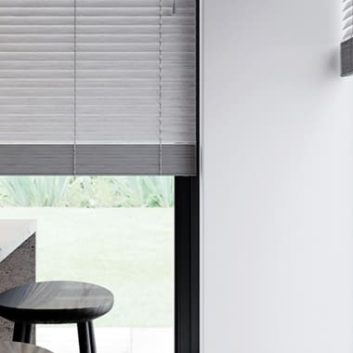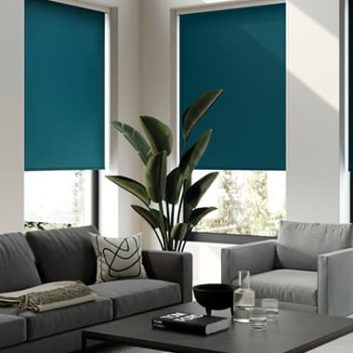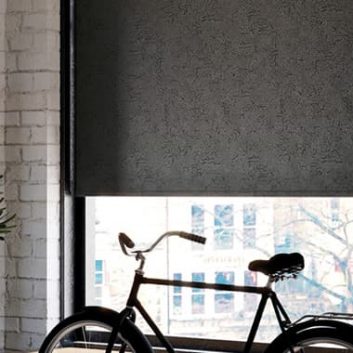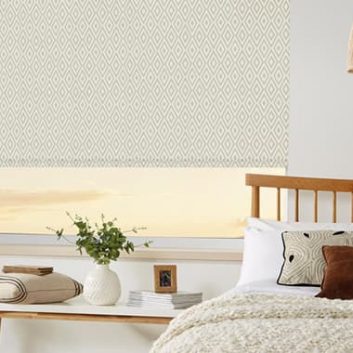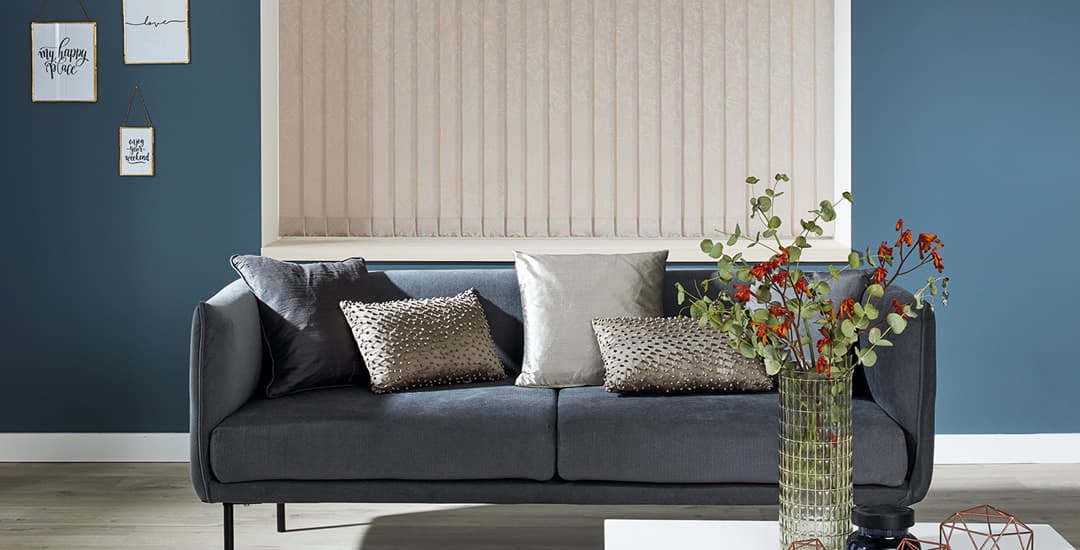
Is it better to keep blinds open or closed on a hot day, and does keeping blinds closed keep heat out? Yes to the latter, and you will definitely want to keep your blinds closed on hot days to keep the temperature down.
Many people actually assume that the opposite is the case, thinking that closed blinds will trap heat inside of the room rather than reducing how hot it gets in the first place. However, when the temperature outside is hotter than the temperature inside, that logic does not hold true!
Window blinds can help to keep more of your central heating inside of the house during the winter, and so it stands to reason that they can also help to keep more of the sun (and so, heat) outside of the house in the summer, for the 5-7 hot days of the year during which this tends to be a significant problem here in the UK.
The extent to which a blind can help to keep a room tolerable in the summer can be variable depending on the type of blinds you have, and some are far more effective in this respect than others. Closed blinds serve to deflect the sun (and so, heat) before it gets into the room, which reduces unwanted solar gain and helps to keep your home cooler in turn.
Also, if you have air conditioning (or being as this is the UK, for most of us, a more relevant statement would be “ if you have a fan”), closing your blinds will help the air conditioning unit to work more efficiently and at lower cost, or make your fan just that little bit more effective in its support of your sweat management campaign.
Is it better to keep blinds open or closed on a hot day?
Is it better to keep blinds open or closed on a hot day, and won’t closed blinds actually trap heat inside? Keeping blinds closed on hot days will reduce the temperature of the room when the outside temperature is hotter in the first place. Also, you should look at closing your blinds early on in the day before the sun really starts cracking the pavement, to reduce the extent to which heat gets into the room in the first place.
What type of blinds keep heat out most effectively?
All blinds (when closed) help to keep heat out of your room to an extent, but some are better at it than others.
- Blinds made of thick materials will insulate more efficiently than ones made of a thinner material, so faux-wood blinds and real wood blinds would keep heat out more effectively than a lightweight aluminium Venetian blind which is less heavy and dense.
- That said, aluminium Venetian blinds tend to have a glossy metal finish, which itself gains some points in the sun-repelling stakes as it reflects the heat back where it came from more effectively.
- Window blinds made of various fabrics keep heat out to different degrees based on the thickness of their fabric (which may encompass a lining material too). This means that the average Roman blind would keep more heat out than the average roller blind or vertical blind, as Roman blinds tend to be far thicker/heavier, and are also lined as standard.
- Many types of blinds (including Roman blinds, roller blinds, and vertical blinds) can be made as blackout blinds with the use of a special coating or blackout lining. Adding this layer of fabric itself adds to the insulating properties of the blind – which you might reasonably expect as it is designed specifically to keep light out.
- However, you can also buy blackout blinds with a lining that is not only blackout but also encompasses additional powers of thermal insulation too, which will supercharge the extent to which your blind helps to keep your room tolerable in summer.
- Also, regardless of the type of blind you have, blinds in white or light colours, or that are lined with and so, have a sun-facing light colour, will reflect the sun and heat more effectively than dark colours will.
Many people who buy blackout blinds are surprised to find that the blackout lining is not actually black; but is in fact usually a light colour for this exact reason, as well as of course for aesthetic reasons!
How to use blinds to keep the heat out most effectively
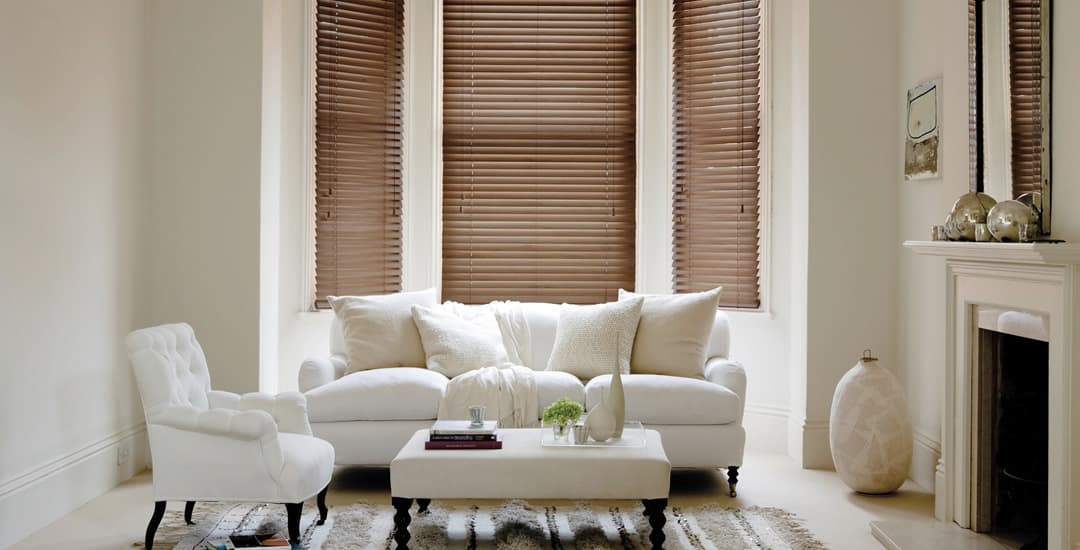
Regardless of the type of blinds you own, how you fit them and use them can also contribute to how effectively they keep the heat out of your room in summer.
- Firstly, the closer the blind lies to the window, the more effectively it will help to reduce the temperature, as the gap for warm air to circulate between the window and the blind is that much smaller.
- Also, generally you will want to get your blinds closed before the room starts to heat up, only opening them again (if you wish to) when the outside temperature becomes more tolerable.
- Generally, opening the windows behind the closed blind is considered the best way to help air to circulate and keep the temperature down too, but if your blinds get blown about by a breeze to the point that they let the sun in, this might not be the case.
This is most likely to happen with vertical blinds, but their bottom weights largely negate this effect in more or less anything less extreme than a blizzard, and if you were facing a blizzard, the whole excessive heat issue would likely be irrelevant anyway… - On which note, if you are using a fan in the room, try to direct it into the room, rather than at the blinds/window, both to reduce how much the blind blows about, and to maximise the amount of air circulation achieved.
Which way do you close blinds to keep heat out?
If you have Roman blinds or roller blinds, there is no “which way” about how you close them; they’re either open, closed, or somewhere in the middle. This means that for you, “fully closed” is about all you need to know here.
However, if you have Venetian blinds, real wood blinds, faux wood blinds, or vertical blinds, their slats/louvres can be rotated right around; which means you have a choice in terms of which way you flip them.
So, which way do you close blinds to keep heat out if you have adjustable blinds like these? Basically, if the blind is fully closed with the slats/louvres lying flush against each other, it doesn’t matter which way they’re turned to achieve this, unless you’re dealing with blackout vertical blinds specifically; in which case, you will want to have the blackout side of the blind facing outward towards the sun.
An argument could potentially be made by MythBusters or similar that for Venetian blinds with a shiny gloss finish to their metal, tilting the slats upwards at the back will deflect (or do I mean reflect maybe? Sure MythBusters could tell me, should write in) the sun/heat away most effectively.
This is just pure conjecture on my part though; if you happen to be science-y or just possessing of more logical reasoning skills than I am and can give me some factual basis for or against this theory, tell me in the comments and I will be more than delighted to update this post accordingly.

